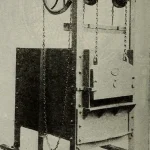
Guest Post by Malcolm Peart (first posted on CERM ® RISK INSIGHTS – reposted here with permission)
Seeing eye dogs, or guide dogs, are so well trained that they know right from wrong. Even though their ‘master’ gives an order the trained canine won’t obey unless it’s safe; and that’s what we call intelligent disobedience. The dog is praised for exhibiting such behaviour. However, in corporate and project management circles, and despite the need for human intelligence enhanced through training, qualifications and experience, such behaviour is often branded as just plain disobedient.
Many organisations have some set of rules and regulations which govern expected norms of behaviour. They form part of an organisation’s culture and such ‘expectations’ become some form of ethical standard. Great…when there is ‘business as usual’. But in a crisis standard operating procedures tend not to apply. These situations, as well as people, can become heated and with heat can come fire and the tell-tale smoke that things aren’t quite right.
[Read more…]







 Ask a question or send along a comment.
Please login to view and use the contact form.
Ask a question or send along a comment.
Please login to view and use the contact form.